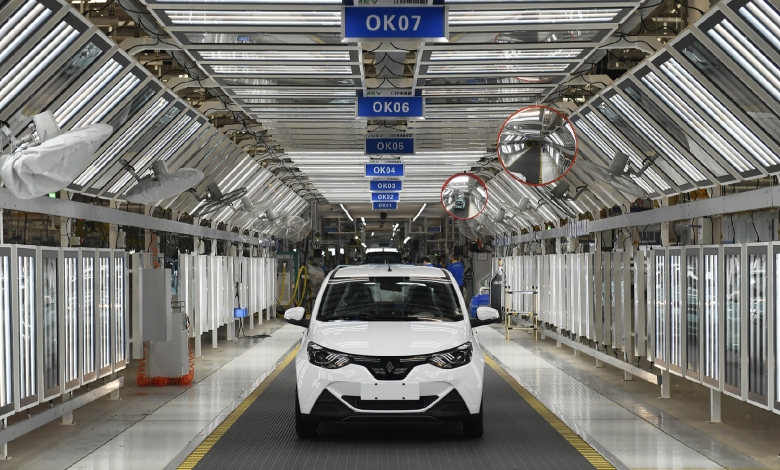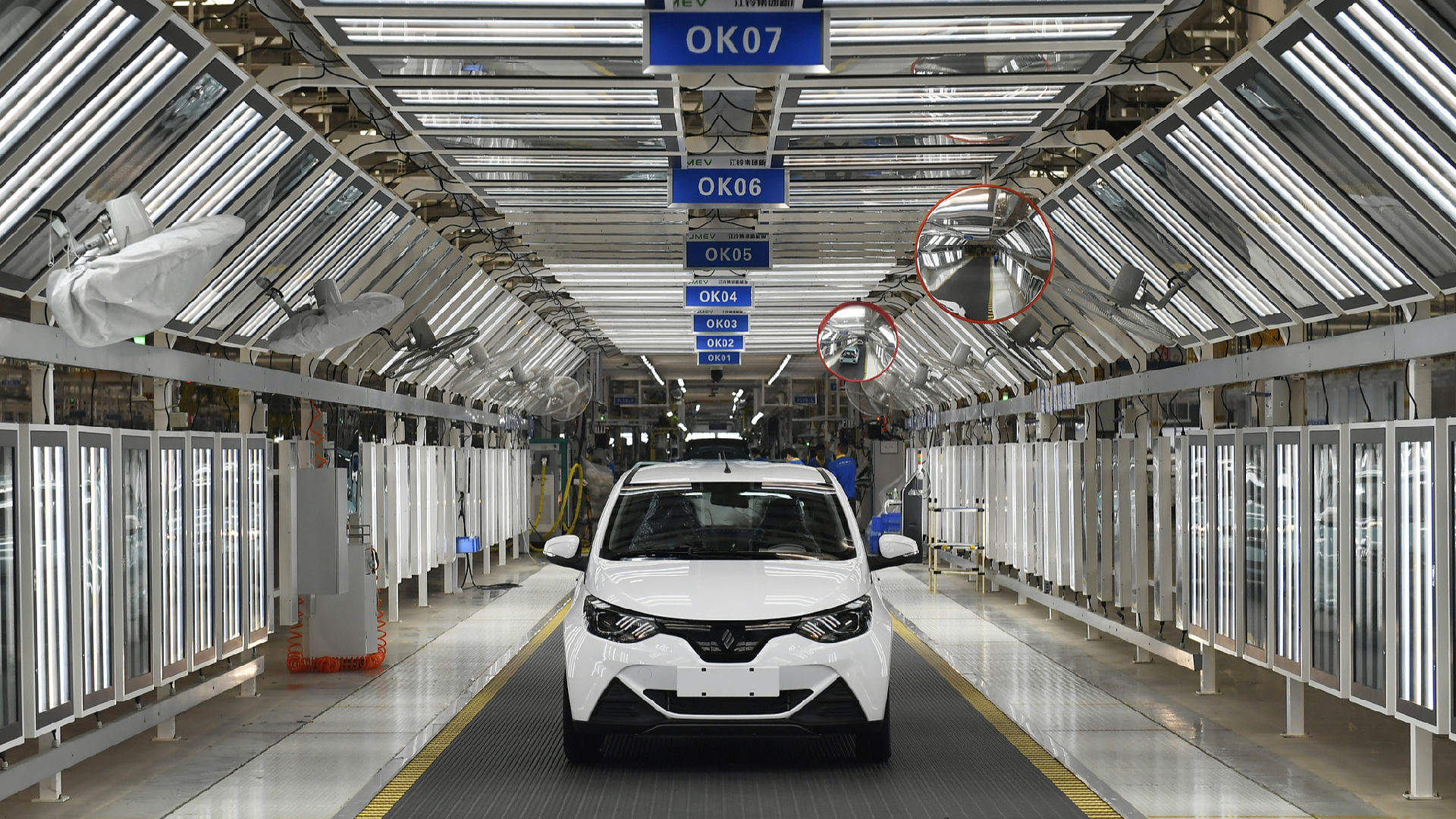EU decision to press ahead with tariffs on Chinese EVs sparks outcry


<img src='https://news.cgtn.com/news/2024-10-05/EU-decision-to-press-ahead-with-tariffs-on-Chinese-EVs-sparks-outcry-1xrZ2B2exCU/img/757db63e634540b2bdd10d5d430391d5/757db63e634540b2bdd10d5d430391d5.png' alt='A smart factory producing electric vehicles in Nanchang, Jiangxi Province, China, September 27, 2024. /CFP'
Both Chinese and European sides have voiced serious concerns and dissatisfaction, following the European Union (EU)’s decision to adopt definitive tariffs of up to 45 percent on Chinese electric vehicle (EV) imports in a vote on Friday. They warned the move could hurt the competitiveness of the European auto industry and called for a negotiated solution.
“China firmly opposes the unfair, illegal and unreasonable protectionist practices of EU, and resolutely opposes the EU additional countervailing duty on Chinese electric vehicles,” said a spokesperson from the Ministry of Commerce on Friday. The EU’s move will not solve any problems but only waver Chinese enterprises’ confidence and resolve and prevent them from conducting cooperation and investment in Europe, according to the spokesperson.
In a response to the matter on Saturday, China Council for the Promotion of International Trade also expressed its firm opposition, adding that it will support China and the EU to resolve their differences through dialogue and consultation, in order to reach a solution that aligns with the common interests of both parties, and promotes the healthy and stable development of bilateral economic and trade relations.
China Chamber of Commerce to the EU said the bloc’s anti-subsidy investigation into Chinese EV is a “politically motivated and unjustified protectionist measure,” in a statement issued on Friday. This ultimately undermines the competitiveness of the European market and the vitality of the global electric vehicle supply chain, added the organization.
<img src='https://news.cgtn.com/news/2024-10-05/EU-decision-to-press-ahead-with-tariffs-on-Chinese-EVs-sparks-outcry-1xrZ2B2exCU/img/a8a0047e91c54f24b299d0b814df27da/a8a0047e91c54f24b299d0b814df27da.jpeg' alt='Electric vehicles awaiting to be docked at a port in Jiangsu Province, China, July 19, 2024. /CFP'
On the European side, auto manufacturers have also spoken out against the bloc’s latest protectionist move.
Hildegard Müller, president of the German Association of the Automotive Industry, called the EU’s decision “a further step away from global cooperation.”
Meanwhile, Tanja Gonner, director general of the Federation of German Industries, emphasizes the need for ongoing negotiations to prevent trade conflicts and balance the interests of stable economic relations between Europe and China.
<img src='https://news.cgtn.com/news/2024-10-05/EU-decision-to-press-ahead-with-tariffs-on-Chinese-EVs-sparks-outcry-1xrZ2B2exCU/img/178f59e375d94eeba8b9338752dfde4f/178f59e375d94eeba8b9338752dfde4f.jpeg' alt='Visitors look at electric cars of Chinese car brand BYD at the IAA Mobility 2023 international motor show, Munich, Germany, September 6, 2023. /CFP'
German auto giant Volkswagen also called for a negotiated solution, in a press release issued on Friday. The company asserted that the planned tariffs are the wrong approach and would not improve the competitiveness of the European auto industry.
BMW warned of negative consequences. “Today’s vote is a fatal signal for the European automotive industry,” BMW CEO Oliver Zipse told local media. “Now a quick solution is needed between the European Commission and China to prevent a trade conflict that will ultimately only have losers.”
Mercedes also fretted about its negative effects on the industry. “We are convinced that punitive tariffs worsen the competitiveness of an industry in the long term,” a spokeswoman was quoted by German news agency DPA as saying.
Meanwhile, Geely Holding, which owns stakes in Swedish automaker Volvo Cars, said on Friday it was disappointed by the European Commission’s plan to impose tariffs on Chinese-made electric vehicles, saying it could hinder economic and trade relations. Volvo Cars hopes to avoid hefty tariffs when importing its China-made electric vehicles into Europe by reaching an agreement on pricing, according to both the company and the Swedish government.
(With input from agencies)

